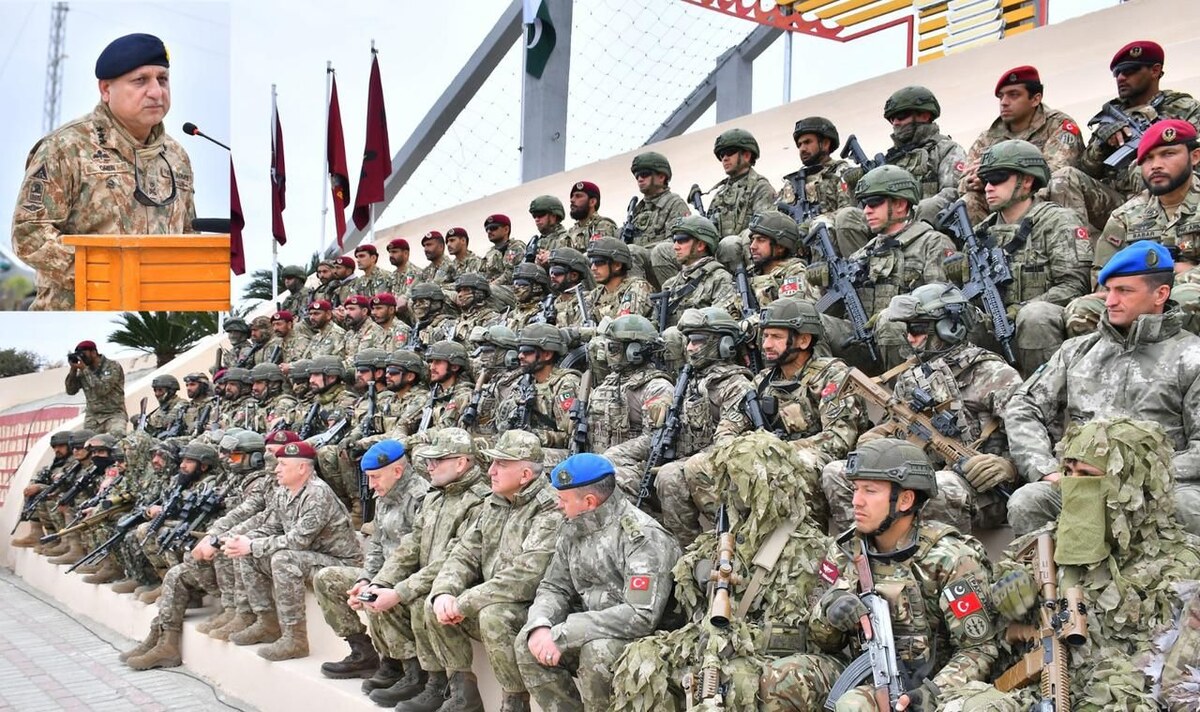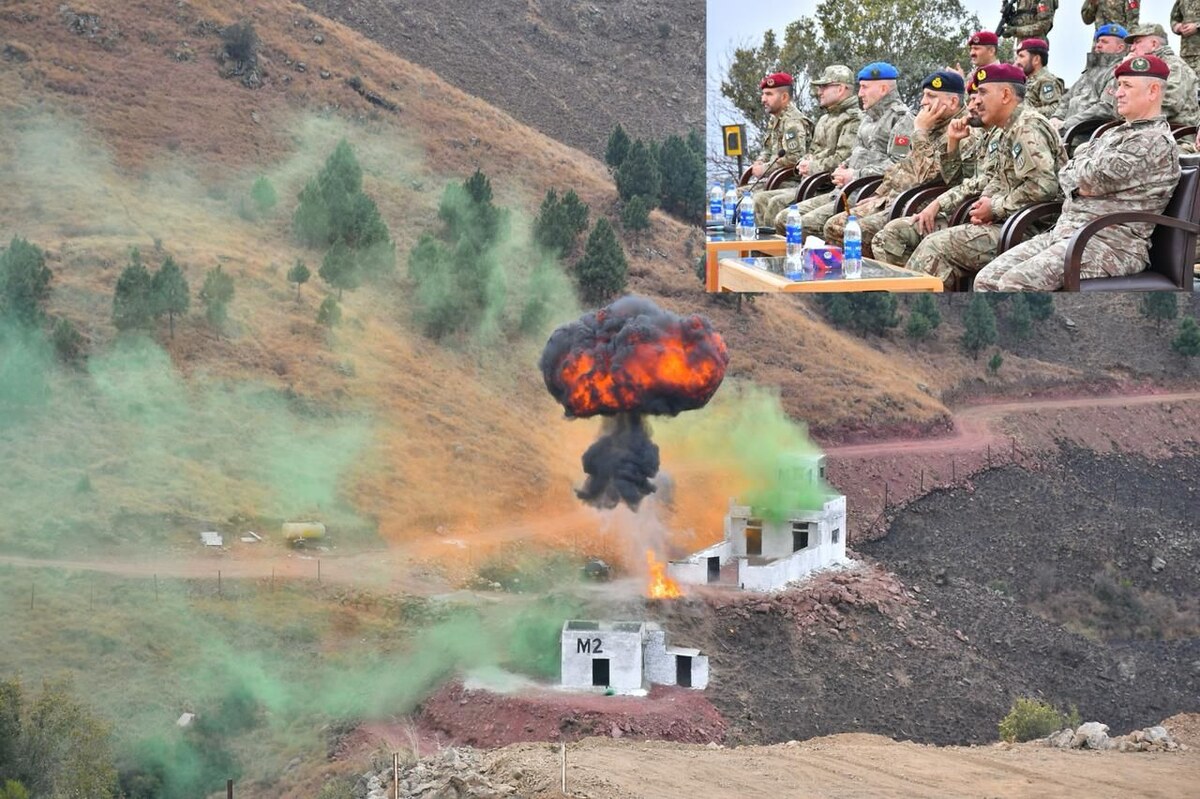ISLAMABAD: Pakistan and Türkiye concluded their two-week joint military exercise, “Ataturk-XIII,” on Thursday, highlighting the deepening defense cooperation between the two nations, according to the Inter-Services Public Relations (ISPR).
The exercise, which began on February 10 at Pakistan’s Special Operations School in Cherat, involved two combat teams from Pakistan’s Special Services Group and 36 personnel from Türkiye’s Special Forces.
The closing ceremony was attended by Commander 11 Corps as the chief guest, with Brig. Gen. Ahmet Asik from Türkiye also in attendance.
“The exercise was aimed at refining professional skills through joint training besides harnessing the historic military-to-military relations among the friendly countries,” the ISPR said. “Participating troops benefited immensely from joint training/exercise.”

Pakistan’s Commander 11 Corps Lt. Gen. Syed Omer Ahmed Bokhari addresses participating troops from Pakistan and Türkiye as they conclude joint military exercise “Ataturk-XIII” at the Special Operations School in Cherat, Pakistan. (Photo courtesy: ISPR)
The collaboration comes days after Turkish President Recep Tayyip Erdogan’s visit to Pakistan on February 13, during which both countries signed 24 agreements to bolster economic and defense ties. The leaders agreed to elevate bilateral trade to $5 billion annually, reflecting a commitment to strengthen relations across various sectors.

Military officials review participating troops from Pakistan and Türkiye during the joint military exercise “Ataturk-XIII” at the Special Operations School in Cherat, Pakistan. (Photo courtesy: ISPR)
Pakistan and Türkiye also enjoy a longstanding defense partnership. Notably, Türkiye has been involved in modernizing Pakistan’s submarine fleet, including the upgrade of Agosta 90B-class submarines, enhancing the South Asian nation’s maritime capabilities.
The recent exercise focused on counterterrorism operations and took place amid a surge in militant violence in Pakistan. Islamabad has been actively seeking to enhance international collaboration to effectively address these security challenges.


















